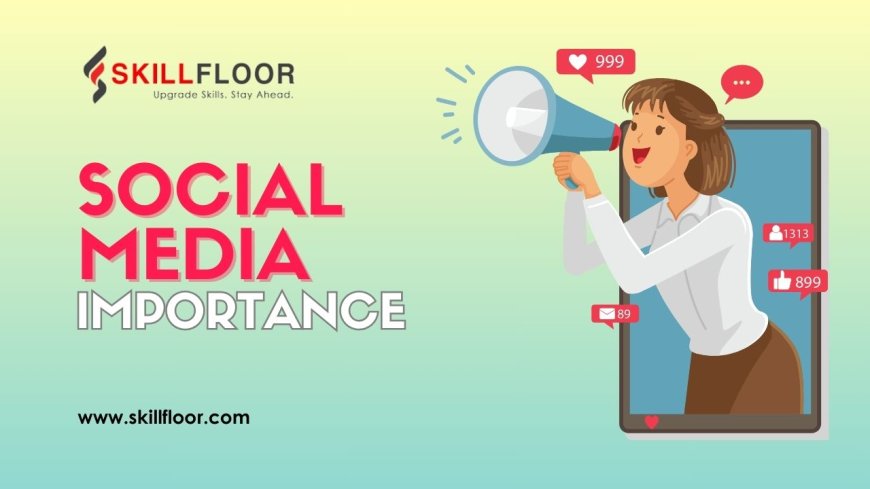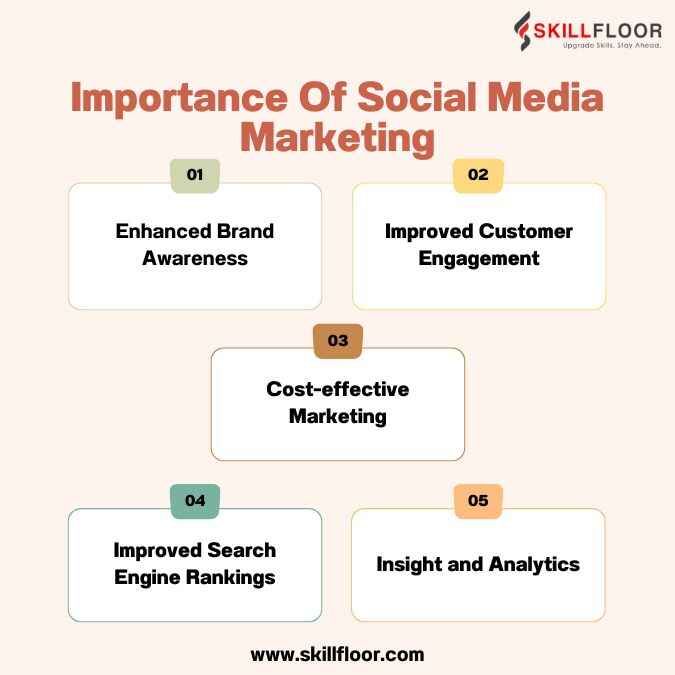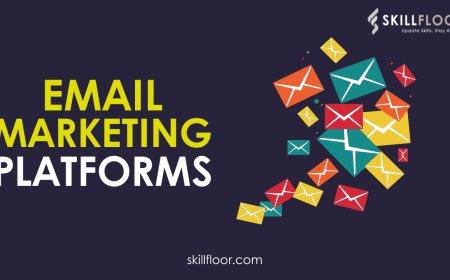Importance Of Social Media Marketing
Understand why Social Media Marketing is vital for modern businesses. Discover how to use it effectively for growth and connecting with customers.

The importance of social media marketing in today's digital world is significant. For businesses, social networking is an effective tool for reaching a larger audience. It enables businesses to interact with their customers, raise brand awareness, and direct traffic to their websites. Social media is important in digital marketing because it provides tools and information that help organizations better understand their target audience. This insight enables the creation of content that resonates with individuals, thereby strengthening the brand's relationship with its customers.
Moreover, the importance of social media marketing lies in its ability to improve customer relationships and service. Social media platforms enable businesses to communicate directly with their clients, reacting rapidly to questions and criticism. This connection can improve client happiness and loyalty. Social media marketing is also affordable, making it an excellent choice for organizations of all sizes. Social media is a vital component of every digital marketing plan nowadays since it provides useful data and prospects for growth.
Social Media Marketing Matters
1. Enhanced Brand Awareness
Social media networks such as Facebook, Instagram, Twitter, and LinkedIn enable businesses to access a large audience. With billions of active users, these platforms enable firms to enhance visibility and reach potential customers who might not have discovered them otherwise. Consistent and purposeful social media presence contributes to brand identity and recognition.
2. Improved Customer Engagement
Social media is a two-way street that allows businesses to communicate directly with their customers. This interaction strengthens relationships, creates trust, and boosts client loyalty. Businesses can reply to inquiries, collect feedback, and provide help via comments, messages, and social media posts, thereby improving the overall customer experience.
3. Cost-effective Marketing
Social media marketing is far less expensive than traditional marketing strategies. Most social media networks include free company profiles, but paid advertising alternatives can be adapted to any budget. This makes it accessible to small enterprises and startups with minimal marketing budgets. Furthermore, social media efforts frequently provide higher ROI due to precision targeting and the opportunity to track results in real time.
4. Improved Search Engine Rankings
Social media engagement affects search engine rankings. When businesses share high-quality content that resonates with their target audience, it generates social signals such as shares, likes, and comments, which search engines use to rank websites. Furthermore, social media profiles frequently appear in search engine results, giving potential customers another way to find your brand.
5. Insight and Analytics
One of the primary benefits of social media marketing is access to precise information and insights. Platforms such as Facebook Insights, Twitter Analytics, and Instagram Insights offer vital information on audience demographics, engagement rates, and content performance. This data allows firms to fine-tune their strategy, gain a better understanding of their target audience, and make informed decisions.

Implementing an Effective Social Media Marketing Strategy
1. Define Your Goals: Before getting started with social media marketing, you must first outline your goals. Are you looking to increase brand awareness, drive website traffic, create leads, or enhance sales? Clear objectives will help guide your plan and measure progress.
2. Know Your Audience: Understanding your target audience is essential for developing content that resonates. Conduct market research to understand your target audience's preferences, interests, and online behavior. Tailor your material to their specific demands and engage them effectively.
3. Choose the Right Platforms: Not all social media networks are created equally. Choose sites that are relevant to your business goals and where your target audience is most active. For example, Instagram is perfect for visual brands, LinkedIn for B2B businesses, and Twitter for real-time engagement.
4. Create Engaging Content: Content is the foundation of social media marketing. Create a content calendar and include a variety of promotional, instructive, and amusing posts. Use high-quality photos, movies, and graphics to draw attention. Use storytelling to make your material more approachable and memorable.
5. Consistent Posting Schedule: Consistency is essential in social media marketing. Regular publishing keeps your audience interested and your brand front of mind. Use scheduling tools like Hootsuite or Buffer to plan and automate your posts, ensuring a consistent flow of material.
6. Engage Your Audience: Don't simply post and forget. Engage with your audience by replying to comments, emails, and mentions. Participate in relevant discussions and use hashtags to raise your visibility. Creating a community around your brand increases loyalty and trust.
7. Monitor and Adjust: Social media marketing isn't set in stone. Regularly analyze your performance with analytics tools and alter your plan as appropriate. Pay attention to what works and what doesn't, and be adaptable to shifting trends and audience preferences.
What Are The Best Social Media Platforms For Businesses?
When deciding which social media platforms are appropriate for your business, keep your target audience and business goals in mind. Each platform has distinct features and demographics, making some better suited to specific sorts of businesses than others. For example, Facebook is popular among people of all ages and is excellent for increasing brand loyalty and customer engagement because of its numerous content forms such as posts, stories, and adverts.
Instagram is especially useful for businesses that depend on visual content, like fashion, cuisine, and lifestyle industries. Instagram's focus on high-quality photographs and videos enables businesses to display their products and engage with a younger audience. Features such as Stories, IGTV, and Shopping make it simple to engage users and drive revenue directly from the platform.
LinkedIn is perfect for B2B companies and professionals who want to network and gain industry expertise. It serves as a platform for professional content sharing, talent recruitment, and business networking. Twitter allows for real-time participation and updates, making it ideal for customer support and providing important news. Pinterest, on the other hand, is ideal for businesses with a strong visual appeal, such as DIY crafts, home decor, and recipes, as it provides a platform for inspiring and attracting consumers with creative material.
Social media marketing is a strong tool that may help your business grow by increasing brand awareness, customer interaction, and sales. Businesses may use social media platforms to engage with their target audience, create long-term connections, and achieve their marketing objectives by following a well-thought-out strategy. As the digital landscape evolves, effective social media marketing becomes increasingly important for long-term growth and profitability.





























































